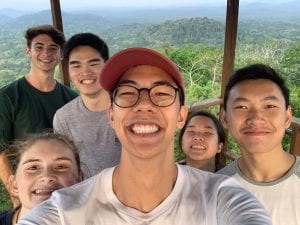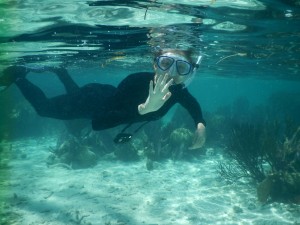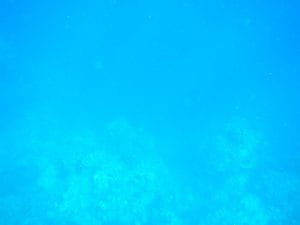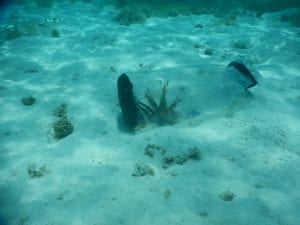Hey this is Elena (aka ers10). I can’t believe that the trip is happening so soon! Technically for me it’s starting tomorrow, since I have to fly to Houston from California. I just finished packing, which was a relief since I really wasn’t sure if everything would fit in one carry-on-sized bag and a backpack. I definitely think I forgot something, but I have faith it will work out.
I’m so excited to see everything I read about in real life. The reading of the textbook was super informative, as was the research I did for the presentations (for the reef I researched brown algae, and for the rainforest I researched orthoptera, the name of the order to which grasshoppers, locusts, crickets, and katydids belong). I’ve been to the tropics once before, but I don’t really remember it, and it definitely was not an experience like the one we’re about to have, although I realized the professors left much of the trip as a surprise. What I do know is that we’re going to see so many cool plants and animals, and I absolutely cannot wait. I’m also super excited to spend the days hiking and snorkeling while looking for the different organisms. I love spending time outside, although I’m a bit nervous about the heat and humidity because I’ve gotten used to the nice weather at home. I’m also a bit nervous about the bug situation, both with regards to being bitten and to not being able to find/identify any of my taxa! I’ve never done field work before, so I don’t really know what to expect.
Overall, I’m more excited than nervous. I’m looking forward to learning about the organisms and topics that I didn’t research, as well as hopefully seeing the taxa I chose. I also can’t wait to get to know everyone on the trip better!
Next time you all hear from me, I should be in Belize, so see you all then!





